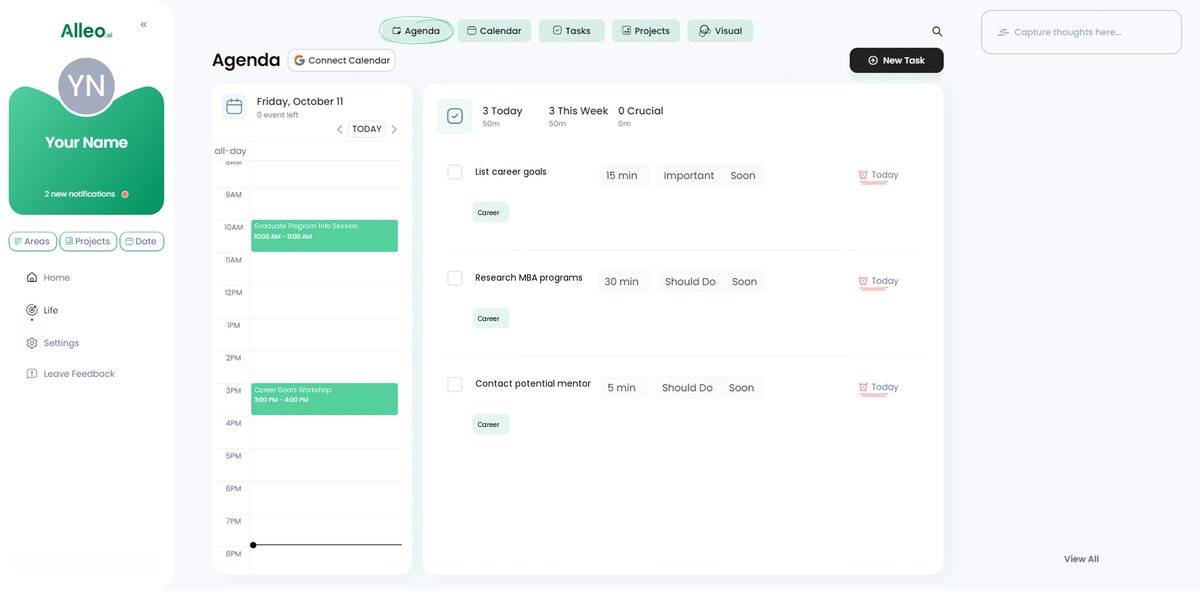Is Graduate School Worth It for Executives? 7 Essential Steps to Make the Right Decision
Are you feeling stuck on the corporate ladder? Many executives wonder, “Is an MBA worth it for executives?”
As a life coach, I’ve helped many professionals navigate these challenges. In my experience helping clients stand out in competitive industries and explore executive career advancement opportunities, I often encounter confusion about the value of a graduate degree.
In this post, you’ll discover proven strategies to evaluate whether graduate school is worth it for executives. We’ll explore specific tools, benefits, and actionable advice to help you make an informed decision about executive education ROI and industry-specific graduate degrees for executives.
Let’s dive in and examine how MBA vs. executive experience can impact your career trajectory.

Navigating the corporate world can be confusing. Many professionals wonder if a master’s degree, particularly an MBA, is worth it for executives seeking career advancement.
They see high-level executives succeed with just a bachelor’s degree, which adds to their doubts about the ROI of executive education.
Several clients initially struggle with this dilemma. They worry about investing time and money into graduate school without a guaranteed return, questioning whether MBA vs. executive experience is more valuable.
The confusion is real. Professionals aiming for promotions often face mixed opinions and conflicting advice about executive leadership development programs.
The uncertainty can be paralyzing.
In my experience, tackling this issue head-on is crucial. By understanding your career goals and needs, you can make an informed decision about whether an MBA is worth it for executives like yourself.
Mapping Out Your Path: Key Steps to Evaluate Graduate School Worth
Overcoming this challenge requires a few key steps. Here are the main areas to focus on to make progress when considering if an MBA is worth it for executives:
- Assess Career Goals and Advancement Needs: Define your long-term executive career advancement goals and identify the necessary skills.
- Research ROI of Specific Graduate Programs: Compare tuition costs and potential salary increases to determine the ROI of executive education.
- Explore Part-Time and Online MBA Options: Investigate flexible part-time graduate programs for working professionals that allow you to work while studying.
- Consider Executive Education Certificates: Identify relevant certificate programs that align with your career goals and industry-specific needs.
- Evaluate EMBA Programs for Leadership Skills: Research EMBA programs known for their executive leadership development programs.
- Analyze Industry Trends and Required Skills: Stay updated on industry trends and emerging skills for C-suite leaders.
- Seek Mentorship from Successful Executives: Identify potential mentors within your network and seek their guidance on MBA vs. executive experience.
Let’s dive in!
1: Assess career goals and advancement needs
Understanding your career goals and executive career advancement needs is essential for making informed decisions about graduate school, including whether an MBA is worth it for executives.
Actionable Steps:
- Define your long-term career goals.
- Write down specific career milestones you want to achieve in the next 5-10 years, considering the ROI of executive education.
- Identify the skills and qualifications needed for your desired roles.
- Research job descriptions and talk to professionals in your target positions, evaluating MBA vs. executive experience.
- Evaluate your current skill set and experience.
- Create a gap analysis to understand where you need to improve, considering industry-specific graduate degrees for executives.
Explanation:
These steps are crucial for aligning your career trajectory with industry demands. Defining clear goals helps you stay focused, while identifying necessary skills ensures you meet job requirements for C-suite leaders.
Evaluating your current skill set through a gap analysis highlights areas for improvement. This proactive approach is supported by educational resources like the Master of Science in Nonprofit Leadership program, which emphasizes practical skill development similar to executive leadership development programs.
Taking these steps can set a strong foundation for your career advancement, helping you determine if an MBA is worth it for executives in your specific situation.

2: Research ROI of specific graduate programs
Evaluating the return on investment (ROI) of graduate programs is crucial for making an informed decision, especially when considering if an MBA is worth it for executives.
Actionable Steps:
- Compare tuition costs and potential salary increases.
Use online calculators and salary surveys to estimate the financial benefits of different programs, including MBA vs. executive experience. - Look into program rankings and reputation.
Review credible sources like Bloomberg Businessweek and U.S. News & World Report to gauge the quality of the programs, including executive leadership development programs. - Consider the time commitment and opportunity cost.
Calculate the potential income lost during study periods and weigh it against the benefits, especially for part-time graduate programs for working professionals.
Key factors to consider when evaluating ROI:
- Long-term career advancement potential for executives
- Executive networking opportunities in grad school
- Industry recognition of the degree, including industry-specific graduate degrees for executives
Explanation:
These steps matter because understanding the financial implications helps you justify the investment in executive education.
Comparing tuition costs and potential salary increases provides a clear picture of the ROI of executive education. For instance, sources like UC Davis Graduate School of Management offer insights into program quality and benefits for executives considering if an MBA is worth it.
Considering time commitment and opportunity cost ensures you make a well-rounded decision about graduate degrees for C-suite leaders.
Taking these steps will help you navigate the complexities of investing in graduate education and determine if an MBA is worth it for executives seeking career transitions.
3: Explore part-time and online MBA options
Considering part-time and online MBA options is crucial for executives who want to continue working while advancing their education. For many, the question “Is MBA worth it for executives?” can be answered by exploring these flexible programs.
Actionable Steps:
- Research flexible MBA programs.
Make a list of programs offering part-time or online formats that fit your schedule and career goals. This is essential for executive career advancement. - Evaluate program quality and support.
Read reviews and talk to current students or alumni to gauge the effectiveness of these programs and their ROI for executive education. - Assess networking opportunities.
Attend information sessions and networking events to understand the network you will gain, which is crucial for executive networking opportunities in grad school.
Explanation:
These steps matter because they help you find programs that align with your professional and personal life, addressing the “Is MBA worth it for executives” question.
Researching flexible MBA programs ensures you can balance work and study. Evaluating program quality helps you choose a reputable institution, and assessing networking opportunities allows you to build valuable connections. These factors contribute to the overall ROI of executive education.
For example, Keller Graduate School of Management offers various master’s programs tailored for working professionals, including part-time graduate programs for working professionals.
Taking these steps can provide a feasible path to advancing your career without sacrificing your current job, making an MBA potentially worth it for executives seeking career transitions with graduate degrees.

4: Consider executive education certificates
Considering executive education certificates can be a strategic way to advance your career without committing to a full degree program. For executives wondering “Is MBA worth it for executives?”, these certificates offer an alternative path for executive career advancement.
Actionable Steps:
- Identify relevant certificate programs.
Research offerings from reputable institutions like McCombs School of Business to find programs that align with your career goals and provide ROI of executive education. - Assess the transferability of credits.
Check if the certificate credits can be applied towards a future graduate degree, ensuring you maximize your educational investment and explore options for graduate degrees for C-suite leaders. - Evaluate the time and cost investment.
Compare the duration and fees of different certificate programs to find one that fits your schedule and budget, considering part-time graduate programs for working professionals.
Explanation:
These steps matter because executive education certificates can provide targeted skills and knowledge quickly. Researching reputable programs ensures you receive quality education and access to executive leadership development programs.
Assessing credit transferability helps you plan for future educational pursuits. Finally, evaluating time and cost ensures the program fits your current commitments and financial situation, which is crucial when considering if an MBA is worth it for executives.
For instance, the University of Texas at Dallas offers flexible certificate programs that can be applied towards a graduate degree, providing executive networking opportunities in grad school.
Taking these steps can help you advance your career efficiently and effectively, weighing MBA vs. executive experience for your professional growth.

5: Evaluate EMBA programs for leadership skills
Evaluating EMBA programs for leadership skills is crucial for executives looking to enhance their strategic capabilities and determine if an MBA is worth it for executives.
Actionable Steps:
- Research EMBA programs known for leadership training.
Look into programs like those offered by SeattleU and UT Dallas, considering executive leadership development programs. - Consider the professional experience required for admission.
Ensure you meet the typical experience level for EMBA candidates by reviewing program prerequisites, weighing MBA vs. executive experience. - Evaluate the ROI of executive education and career impact of EMBA programs.
Read success stories and testimonials from alumni to gauge the potential benefits and executive career advancement opportunities.
Key leadership skills often developed in EMBA programs:
- Strategic decision-making
- Change management
- Global business acumen
Explanation:
These steps matter because they help you choose an EMBA program that aligns with your leadership goals and assess if an MBA is worth it for executives.
Researching programs ensures you find one that offers robust training. Considering experience requirements ensures you qualify, and evaluating ROI helps you justify the investment in executive education.
For instance, UT Dallas provides insights into the career impact of their EMBA program, including executive networking opportunities in grad school.
Taking these steps can position you for significant career growth and help determine if an MBA is worth it for executives seeking advancement.

6: Analyze industry trends and required skills
Understanding industry trends and required skills is crucial for staying competitive and relevant in your field, whether you’re considering if an MBA is worth it for executives or exploring other executive career advancement options.
Actionable Steps:
- Stay updated on industry trends and emerging skills.
Follow industry publications and attend relevant webinars to keep your knowledge current, which is essential for evaluating the ROI of executive education. - Identify the skills that are increasingly in demand.
Use resources like GMAC and professional associations to pinpoint essential skills, comparing MBA vs. executive experience value. - Align your career development plan with these trends.
Incorporate new skills into your learning objectives to stay ahead, considering executive leadership development programs or industry-specific graduate degrees for executives.
Explanation:
These steps matter because staying informed about industry trends ensures you remain competitive. Following publications and webinars keeps your knowledge current, which is crucial when deciding if an MBA is worth it for executives.
Using resources like GMAC helps you identify in-demand skills. Aligning your career plan with these trends ensures you focus on relevant development areas, such as part-time graduate programs for working professionals.
By doing so, you can better position yourself for future opportunities and explore executive networking opportunities in grad school.
This approach ensures you remain adaptable and prepared for evolving industry demands, whether pursuing graduate degrees for C-suite leaders or seeking corporate sponsorship for executive education.

7: Seek mentorship from successful executives
Seeking mentorship from successful executives is crucial for gaining insights and guidance tailored to your career goals, especially when considering if an MBA is worth it for executives.
Actionable Steps:
- Identify potential mentors within your network.
Reach out to experienced executives and request mentorship to gain valuable insights and guidance on executive career advancement. - Join professional associations and networking groups.
Participate in events and forums to connect with potential mentors who can help you advance your career and discuss MBA vs. executive experience. - Regularly meet with mentors to discuss your career path and development.
Schedule monthly or quarterly check-ins to gain insights and advice for your career growth, including the ROI of executive education.
Benefits of executive mentorship:
- Personalized career guidance
- Access to industry insights
- Expanded professional network, similar to executive networking opportunities in grad school
Explanation:
These steps matter because mentors provide personalized advice and support, helping you navigate your career path effectively and determine if an MBA is worth it for executives.
Identifying potential mentors within your network ensures you receive relevant guidance on executive leadership development programs.
Joining professional associations and networking groups allows you to expand your connections and explore part-time graduate programs for working professionals.
Regularly meeting with mentors keeps you on track and helps you adapt to industry changes, which can be valuable when considering industry-specific graduate degrees for executives.
For more on the importance of mentorship, check out USF School of Management.
Mentorship can significantly enhance your career progression and help you decide if an MBA is worth it for executives.

Partner with Alleo on Your Executive Journey
We’ve explored whether an MBA is worth it for executives and the steps to evaluate this. But did you know Alleo can make this executive career advancement journey easier and faster?
Set up an account with Alleo in just minutes. Create a personalized career plan with our AI coach, tailored for executive leadership development.
Get tailored coaching sessions like any human coach, focusing on ROI of executive education. Alleo’s coach will follow up on your progress, handle changes, and keep you accountable via text and push notifications, similar to part-time graduate programs for working professionals.
Plus, enjoy a free 14-day trial with no credit card required, perfect for exploring executive networking opportunities.
Ready to get started for free and discover if an MBA is worth it for your executive career? Let me show you how!
Step 1: Logging in or Creating an Account
To begin your executive career advancement journey with Alleo, simply Log in to your account or create a new one to access personalized AI coaching tailored to your professional goals.

Step 2: Choose Your Focus Area
Select “Finding clarity and purpose in life decisions” to align your career goals with your personal values and aspirations, helping you make informed choices about graduate education and professional development.

Step 3: Select “Career” as Your Focus Area
Choose “Career” as your focus area in Alleo to align with your goal of evaluating graduate school options and advancing your executive career path, ensuring personalized guidance tailored to your professional aspirations.

Step 4: Starting a Coaching Session
Begin your journey with Alleo by scheduling an intake session, where you’ll work with our AI coach to create a personalized career plan tailored to your executive goals and graduate education considerations.

Step 5: Viewing and Managing Goals After the Session
After your coaching session, easily track your progress by checking the goals you discussed, which will appear on the home page of the Alleo app, allowing you to stay focused on your executive development journey.

Step 6: Adding events to your calendar or app
Easily track your progress towards your career goals by adding key events and tasks to the Alleo app’s integrated calendar, helping you stay organized and accountable as you navigate your executive journey.

Your Path to Career Advancement: A Decision Worth Making
Reflecting on the steps we’ve discussed, it’s clear that evaluating whether an MBA is worth it for executives requires a thoughtful approach. By defining your executive career advancement goals, assessing the ROI of executive education programs, and exploring flexible part-time graduate programs for working professionals, you can make informed decisions.
Remember, you are not alone in this journey. Many professionals face similar challenges and doubts when considering graduate degrees for C-suite leaders.
Embrace the process, seek mentorship, and stay updated with industry trends through executive leadership development programs.
Ultimately, the right path for you will become evident, whether it’s pursuing an MBA or leveraging your executive experience.
As you take these steps, consider using Alleo to support your journey in exploring industry-specific graduate degrees for executives.
Ready to start? Try Alleo for free and take charge of your career advancement today, potentially unlocking executive networking opportunities in grad school.